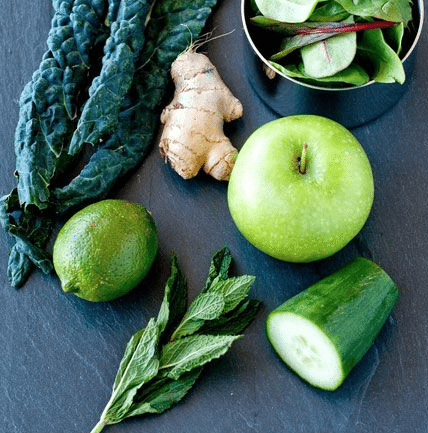
Dr. G: “When we talk about good skincare practices, there are a few important steps to follow – Exfoliate, cleanse, treat, hydrate and protect, but healthy and vibrant looking skin does in fact also need to come from within. Staying true to a health diet (without sugar, alcohol, excess caffeine, dairy) is essential for obtaining the ultimate glow, even skin tone and radiant-looking skin. Concentrated extracts from cruciferous vegetables line broccoli contain bioactive phytonutrients that can help to reverse and repair a lifetime of skin damage – revealing smoother, clearer and more radiant skin.”
Q: We’re seeing a lot of superfoods in skincare. Lately, it seems as though Kale is the ingredient of the moment. What are the health benefits of kale, and how do those translate to skincare?
Dr. G: “Kale is one of the healthiest foods to eat and definitely shows on the skin. Kale contains lutein which is a carotenoid that helps fight and protect against free radicals. Kale also contains high levels of Vitamin A which helps with tissue repair, Vitamin C which assists in brightening skin and Vitamin K which helps with darkness under the eyes due to it’s coagulation properties.”
Q: Are the concentrations of kale substantial enough to really make a difference? Or do you think some of this is hype?
Dr. G: “The skin is the last organ to benefit from anything ingested as it is the furthest away from the source. So, yes putting kale directly on to the skin could be more potent than eating it , but probably not by much. Skincare products need to have the appropriate delivery system as well as crucial anti-aging ingredients to really be effective.”
Q: In your opinion, what is the most potent age-fighting cruciferous vegetable to be using topically (and ingesting internally)?
Dr. G: “Broccoli has more vitamin C than any other vegetable of its kind. As a concentrated source of this powerful antioxidant, broccoli extract offers outstanding protection from free radical assault. In addition, broccoli contains significant amounts of special flavonoids such as kaempferol and quercitin that help recycle vitamin C, thereby boosting its effectiveness. Broccoli also provides a number of important carotenoids like lutein, zeaxanthin, and beta-carotene that also function as key antioxidants to help protect your skin from the effects of premature aging. Along with vitamin E, another valuable antioxidant, broccoli is a rich source of vitamin B and health-promoting minerals like manganese and zinc.”

